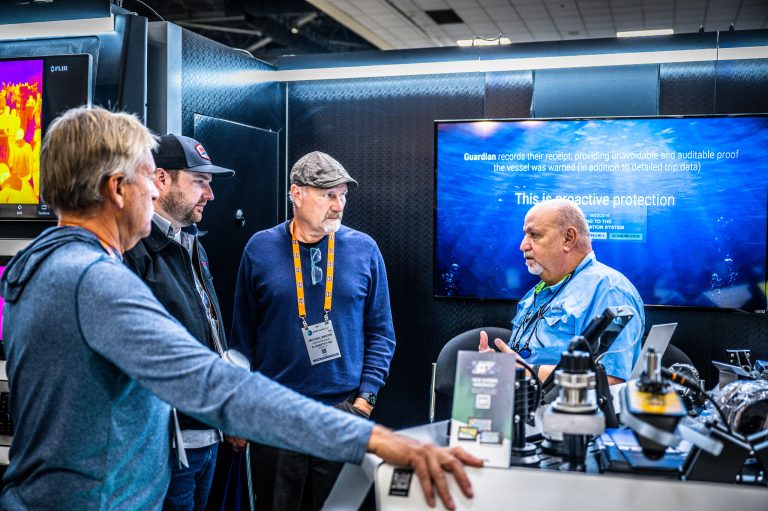Keeping up with today's technological advances can be overwhelming on multiple levels. Many commercial fishing operations have not prioritized the adoption of new tools or techniques because of the disconnect between the capabilities of some innovations and how actual fishers are able to use them. Why would someone who has worked in the same industry for decades change their daily process and use a tool that didn't seem like it was created for them?
Despite this paradox, the use of new technology can help save money, time, and increase safety. While some parts of the industry have turned to cutting-edge technology to better assist with sustainability and safety on and off the water, many ships are still operating with inefficient technical products. Because fisheries and geography vary, it is almost impossible for innovations to be a one-size-fits-all situation across a country.
In 2021, Seafood Harvesters of America, along with NOAA fisheries scientists, the Alaska Ocean Cluster, and a few other organizations, conducted a survey called Technological advances in our fisheries: innovation priorities and the way forward To target members of the fishing industry to help identify and better understand technology priorities and needs. Using survey data, they were able to look for common needs across regions and types of gear that technology could address across the scale of this survey in hopes of guiding technology investments and developments in the commercial fishing industry. We hope this will also provide commercial opportunities to develop products that can be used by many in fishing communities.
The survey results found that fish-finding equipment, weather and ocean monitoring, bycatch reduction, and communications and data network systems were all top priorities in the eyes of ship managers, crews and captains.
Noelle Yochum, who previously led the Conservation Engineering Group at NOAA Fisheries' Alaska Fisheries Science Center, helped organize the survey and has spent most of her career in industry focusing on collaborative research and technology. She will be the mediator for Fishing for the future: innovations that are transforming the industry A session at the Pacific Marine Expo (PME), which will showcase fishermen and other industry professionals who have implemented innovations on their vessels and some of the companies making the latest products. She looks forward to sharing further insights into the survey and the 2022 workshop that came from the findings as well as resolving the disconnects that exist between technology providers and commercial fishermen.
“This has been more of a project over the last few years of my career in the commercial fishing industry,” Yochum said. National Hunter. “This means keeping fishermen safe on the water and helping them connect with innovators who are making new technology that can be used in their vessels. There can be a disconnect between manufacturers and owner-operators in commercial fishing. Given the diversity of the industry, it can be difficult for innovators to think about All the different ways in which their products will be used during the fishery, so it's important to help both parties make those connections. We've brought technology developers and financiers on board to see first-hand how these fisheries work. It's crucial to create well-regulated products for such a challenging industry And the complex.
Through this session, Yochum will help address obstacles to integrating innovations among commercial fishing fleets in several regions of the United States. It will also help explore what it means to identify and adopt successful technologies, and identify needs and barriers to technology development and financing. In commercial fisheries, identify opportunities for long-term capacity building for technology development.
In addition, Brent Baylor, captain of the C/P Island Enterprise for Trident Seafoods will join Yochum as a panel speaker. Baylor has spent more than four decades on the water with about 32 years of experience in his wheelhouse, primarily targeting Wild Alaska Pollock and Pacific Whiting. He was directly involved in the testing New technology, with a focus on enhancing efficiency and sustainability in fisheries.
In hopes of strengthening communication between commercial fishers and innovators, you can join us for the session on November 8, starting at 12:00 p.m. Learn more about Fishing for the Future: Innovations That Advance the Industry Session.

